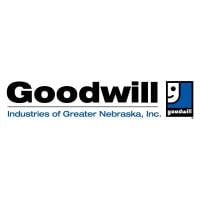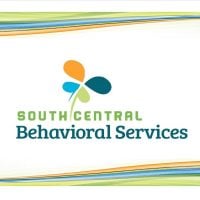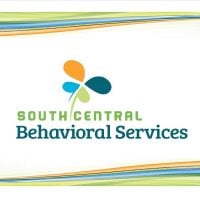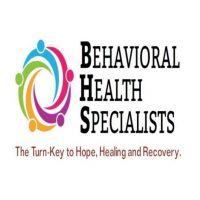Friendship House
Drug Rehab Center in Grand Island, Nebraska
Friendship House in Grand Island, Nebraska is a faith-based residential facility that provides comprehensive care for individuals struggling with addiction and substance use disorders, offering a safe and supportive environment to help individuals achieve long-term sobriety through evidence-based treatment and a wide range of services focusing on life skills.
About This Nebraska Facility
Friendship House, founded in 1999, is an addiction treatment facility located in Grand Island, NE. This 20 bed facility offers a range of services for individuals suffering from alcoholism, opioid addiction, substance abuse, drug addiction, dual diagnosis, and mental health issues. Accredited by CARF, Friendship House provides various levels of care such as aftercare support, drug rehab, inpatient treatment, sober-living/half-way housing, residential programs, dual-diagnosis treatment, and outpatient care. With their comprehensive approach to individualized treatment plans and evidence-based therapies, Friendship House strives to help individuals recover and break free from the grasp of addiction.
Friendship House is dedicated to providing effective addiction treatment services through various comprehensive programs. Their range of treatment methods includes individual counseling and therapy sessions to address underlying issues and develop coping strategies. Additionally, they offer group therapy sessions where individuals can find support and understanding from peers facing similar challenges. The facility also provides psychiatric evaluations and medication-assisted treatment for those struggling with co-occurring mental health disorders along with substance abuse. Furthermore, Friendship House offers aftercare support to ensure individuals maintain sobriety even after leaving the program. Their commitment to assisting people on their journey towards recovery makes them an indispensable resource for those seeking help in overcoming addiction and substance abuse-related problems.
Genders
Ages
Modality
Additional
Accreditations

CARF
The Commission on Accreditation of Rehabilitation Facilities (CARF) is a non-profit organization that specifically accredits rehab organizations. Founded in 1966, CARF's, mission is to help service providers like rehab facilities maintain high standards of care.
Conditions and Issues Treated
Substance abuse typically leads to addiction, which requires specialized treatment programs at Friendship House to address. Many people benefit from inpatient drug rehabilitation, which includes inpatient acute care and residential rehabilitation. Other levels of care include intensive outpatient therapy, individual counseling, and support groups. Family therapy is also an essential part of treatment for substance abuse.
A combination of treatments is often needed to treat drug abuse issues effectively. In the case of drug abuse, there is no easy answer or one-size-fits-all cure.
Opioid addiction treatment helps people addicted to opioids in Nebraska curb their drug use. The selection of a treatment setting depends on the severity of the addiction. Mild cases are usually treated in outpatient facilities; severe cases need hospitalization or treatment in a residential facility. Doctors use medicines along with counseling and behavioral therapies to treat the addiction. The treatment includes medication, counseling and therapy. It can also include group counseling, individual counseling and family counseling.
Levels of Care Offered at Friendship House
This center offers a variety of custom treatment tailored to individual recovery. Currently available are Aftercare Support, Drug Rehab, Inpatient, Residential, Sober-Living / Half-Way, with additional therapies available as listed below.
Inpatient rehab means living at the Grand Island, NE facility while all aspects of an addiction or co-occurring disorder get addressed. This helps limit the distractions and increase the focus on recovery. Typical inpatient rehab stays are approximately one month long.
Sober living home provides a drug and alcohol-free environment for people in Grand Island trying to stay sober. The atmosphere in SLH is less restrictive than in inpatient rehab. Members have to follow many rules, including not drinking and using drugs and paying rent and bills. There is no limit for the minimum or maximum period of stay, but as long as you stay in the house, you should follow the rules, as it’s the opportunity for individual and group sobriety.
Residential treatment programs are those that offer housing and meals in addition to substance abuse treatment. Rehab facilities that offer residential treatment allow patients to focus solely on recovery, in an environment totally separate from their lives. Some rehab centers specialize in short-term residential treatment (a few days to a week or two), while others solely provide treatment on a long-term basis (several weeks to months). Some offer both, and tailor treatment to the patient’s individual requirements.
After treatment, addiction treatment can be frightening for newly sober people. Aftercare support provided by Friendship House is designed to give resources and help on a continued basis. It can involve finding housing in and around Nebraska, setting up 12-step meeting groups, continued medical monitoring, and counseling.
Therapies & Programs
Couples therapy aims to rebuild the trust between the partners. Partner’s involvement in the process will result in greater chances of treatment success. Couples therapy addresses financial issues, loss of trust, lack of intimacy, and physical abuse.
Family therapy is a set of therapeutic approaches that assumes that the entire family is a system. It utilizes the strengths and resources of the family to help the patient refrain from resorting to substance abuse. The impact of substance abuse is not just on the patient but on the entire family. Family therapy ensures that the patient gets adequate support from the family members after the treatment making the recovery process sustainable
- Family therapy guides all the members of the family to help the patient.
- It helps to repair relationships and improve communication between family members.
- It helps to keep the patient engaged and motivated throughout the treatment.
Group therapy is an important tool in recovery. Finding a peer group in Grand Island, NE and others who relate to your situation is a fundamental tool for recovery at Friendship House. Addiction tends to lead to isolation and feelings of uniqueness. The accountability and friendship that is found in group therapy can be more effective than any single other treatment approach. This is generally introduced early in recovery and is recommended as a lifetime treatment habit.
Trauma therapy is a way of addressing trauma while in a safe situation in order to heal. This may involve Friendship House managing individual or group counseling or both. Other forms of therapy have been proven to assist in healing past traumas.
A type of cognitive-behavioral therapy is Dialectical Behavioral Therapy. It is intended for those who are vulnerable to self-harm and suicidal thoughts. Friendship House aims to help patients understand the connection between their feelings, emotions, and behaviors and provide them with the tools to make a difference in Grand Island, NE. For those whose addictions and habits originate from severe mental health problems, it is beneficial.
Negative feelings are common in substance abuse disorders. If not recognized, they can cause co-occurring disorders. CBT involves strategies that help to change the thinking and behavioral pattern. It can be administered as a monotherapy as well as a part of combination therapy.
Rational Emotive Behavioral Therapy (REBT) is a variation of Cognitive Behavioral Therapy (CBT) that helps people understand how maladaptive, negative, and habitual thoughts and feelings lead to bad life choices. REBT is based on the idea that people operate under many irrational but habitual patterns of thought that fuel harmful practices.
Rehabilitation is not just limited to bringing an individual out of addiction and achieving sobriety. It is considered complete only when an individual starts leading a normal and balanced life. Life skill therapy focuses on the various skills that help an individual to lead a normal life. Patients often do not take care of themselves, struggle professionally, and withdraw from social interaction due to addiction’s physical and emotional disturbances.
Life skills therapy helps people in Nebraska improve various personal, professional, and social skills such as cooking healthy meals, maintaining proper hygiene, budgeting, decision-making, time management, regulation of emotions, and effectively resolving interpersonal conflicts.
The first three steps depend on the patient, so they are more specific and situational. The succeeding four steps center on practical issues brought on by substance abuse. Steps 8 and 9 deal with the social and emotional repercussions of addiction, encouraging patients to make amends to people they have wronged. These are followed by two steps revolving around the further exploration and reinforcement of Steps 1 to 9.
The last step requires an individual to extend a helping hand to people who are still in the early stages of their recovery.
Payment Options Accepted
For specific insurance or payment methods please contact us.
Additional Details
Specifics, location, and helpful extra information.
Grand Island, Nebraska 68801 Phone Number(308) 382-0422 Meta DetailsUpdated November 25, 2023
Staff Verified
Patient Reviews
There are no reviews yet. Be the first one to write one.
Grand Island, Nebraska Addiction Information
Despite a total population of slightly less than 2 million residents, methamphetamines are one of the most commonly abused illicit substances in the state. Alcohol abuse is so common that a news article once referred to Nebraska as "America's 9th drunkest state". Although opioid abuse rates in Nebraska are not as high as those in other states, opioids are still involved in most overdoses.
Grand Island has seen its fair share of opioid abuse and heroin addiction problems. Over 70 people die every year due to overdosing on drugs on Grand Island. In addition, the average age of first-time alcohol use among children is 13.3 years old. Some of the most common types of drugs used in Grand Island, NE are marijuana, prescription medications, and heroin.
Treatment in Nearby Cities
- Arlington, NE (109.6 mi.)
- Alliance, NE (248.2 mi.)
- Broken Bow, NE (75.4 mi.)
- David City, NE (67.2 mi.)
- North Platte, NE (127.1 mi.)
Centers near Friendship House
The facility name, logo and brand are the property and registered trademarks of Friendship House, and are being used for identification and informational purposes only. Use of these names, logos and brands shall not imply endorsement. RehabNow.org is not affiliated with or sponsored by Friendship House.








